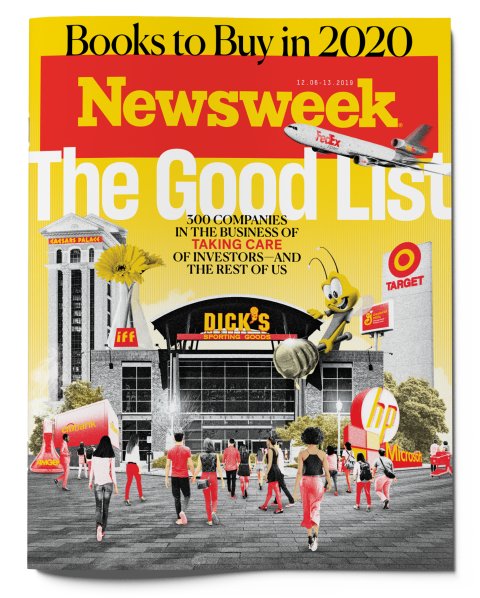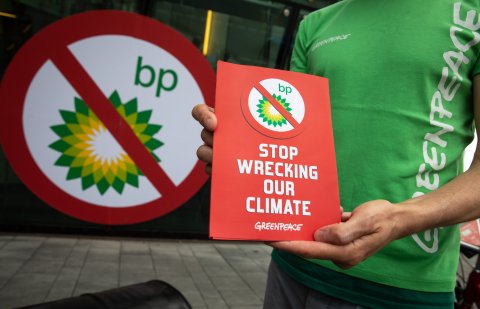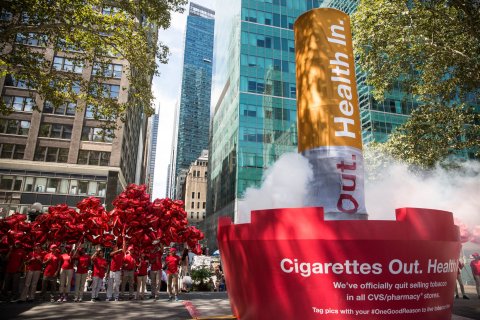
The jury is out on whether corporate social responsibility (CSR) programs will one day make the world a better place. But this much is pretty clear: They're already benefiting the companies that have implemented them. And in some unexpected ways.
Specifically, CSR has become the weapon of choice for what is known as, in corporate speak, the three R's: Investor Relations, Human Resources, and Public Relations.
But before we dive into details, a CSR mini-lesson is in order. First off, CSR isn't an overnight sensation. Over the past couple of decades, companies have been embracing the idea that they need to do more than just make a profit for shareholders. Do-good efforts slowly evolved from passive and limited corporate philanthropy programs—giving to the United Way, for example—to broader and more active CSR programs. Those would take on major social issues like Goldman Sachs' 10,000 Women program, which in partnership with the International Finance Corporation (World Bank) has delivered $1.45 billion in loans to women-owned businesses in developing countries.
Now, they have evolved even more. Many companies are now incorporating impact-on-society considerations into core business activities. For example, Starbucks only uses "ethically-sourced coffee." Programs like these are often focused on "sustainability." In August, 181 CEOs of the country's largest corporations signed a Business Roundtable statement committing to managing their companies not just for shareholders, but also for customers, employees, suppliers, and communities.

The idea behind all of these efforts is the well-worn slogan "doing well by doing good," which means that being a positive force in the community will enhance a company's reputation, which in theory will pay off in more sales, lower costs and over the long term, more money for shareholders.
Can you even measure something like this? Stephen Hahn-Griffiths, chief reputation officer of the Reputation Institute in Boston, says you can. He reels off a string of statistics, like "40% of the reputation of a company is related to corporate responsibility" and says his organization's research proves that reputation is a leading indicator of stock market capitalization, or the total value of a company's shares. In other words, he adds, "CSR has a multiplier effect" when it comes to a company's value. But CSR can be risky. And take a little guts.
According to analysts, CVS's 2014 decision to stop selling tobacco products cost it $2 billion a year in sales and caused the stock price to drop. (Investors took a $1.43 billion hit that year according to Martin Anderson of UNC Greensboro.) In 2010, Campbell Soup announced it was reducing the salt levels in many of its soups, a decision they reversed the following year when sales fell by 32%.
Meanwhile, in 2018, Dick's Sporting Goods stopped selling assault rifles. On a panel at this year's Aspen Ideas Festival, CEO Ed Stack said that decision cost them customers and employees. He notes that many of the customers who applauded the decision at the time seem to have forgotten, but those who were in opposition have not. "Love is fleeting," he says. "But hate is forever."
But many companies feel the do-gooder dividend outweighs the risks, both in relations with consumers and in day-to-day operations.
Brad McLane, who recruits high-level positions at RSR Partners, says, "Companies aren't doing it just to say they have it. My clients are incorporating it into how they do business—what ingredients they use, where they source, how they design products." Megan Kashner, clinical professor at the Kellogg School of Management's Public-Private Interface agrees. She's says that we've moved from "greenwashing programs that mimic CSR" to an era of "authentic CSR." Greenwashing is the practice of making misleading claims that make a company appear more environmentally or socially conscious than it is, for example, when BP began touting itself as being environmentally conscious through a $200 million public relations campaign, only to have a string of environmental disasters—some of which, according to a government report, were caused by corporate cost-cutting to boost profits.

Simon Lowden, Pepsico chief sustainability officer, says, "It's woven into how we operate as a business. For instance, we need to maintain our license to operate in water-stressed regions, so we'd better focus on being responsible stewards of water. It's not only the right thing to do, it's important to our business."
CSR is particularly useful in human resources. Rebecca M. Henderson, holds the John and Natty McArthur Chair at Harvard and is finishing a book on this topic, Reimagining Capitalism in a World on Fire. She says: "CSR has a tremendous impact on the morale of employees. Authentic purpose, which may mean occasionally sacrificing profits, accesses a whole range of emotions difficult to get at otherwise, like trust and engagement."
In other words, it gets through. And that is a good thing. It leads to higher levels of productivity and employee retention.
CSR can also be a big factor in recruiting, particularly for younger employees, says Eric Johnson, executive director of graduate career services at the Kelley School of Business at Indiana University. He says, "Social impact is a big piece of the recruiting process. Probably 50 percent of that initial conversation is about what the company is doing to make the world better."
"Beer companies used to talk about fun and sports. Now they talk about their programs to save water in the world. Social impact can tip the scales. Is a student going to choose an $85,000-a-year job over a $125,000 job because of social impact? I doubt it. But my observation is that jobs heavy in social impact often pay up to 10 percent less than comparable jobs that don't."
Professor Kashner adds, "These newly minted MBAs care and they care about the type of work they're going to be doing. Maybe previous generations drew a line between work and personal life and values, but those boundaries no longer exist." Korn Ferry, the giant executive recruiting firm, recently surveyed the professionals in its network. "Company mission and values" was the No. 1 reason (33 percent ) they'd choose to work for one company over another.
CSR is increasingly part of the conversation with individual shareholders and investors, like the world's largest investment firm, BlackRock, which manages $6.5 trillion dollars for its clients. In his last two annual letters, CEO Larry Fink has called on companies to do more and said that BlackRock will evaluate companies on more than just financial numbers. His 2018 letter said, "As divisions continue to deepen, companies must demonstrate their commitment to the countries, regions, and communities where they operate, particularly on issues central to the world's future prosperity." Many investment firms now have someone in charge of building portfolios around companies based on their performance on Environmental, Social and Governance or ESG. (Measuring which companies are woke is an industry in and of itself.)
One aggregator of ESG ratings, CSRhub.com, lists 634 data sources. They range from the very broad (for example, Alex's Guide to Compassionate Shopping) to the very specific (for example, the Alliance for Bangladesh Worker Safety).
For public relations, CSR is both an offensive and a defensive weapon. CSR can be used to pre-empt the conversation in areas where companies have been criticized. Procter & Gamble's "Ambition 2030 program is heavy on recycling and biodegradability.

But CSR can also be a useful defense. It not only builds up a stock of goodwill with the media and the public, but it generates good news that crowds out the bad. Large corporations are going to get a certain amount of press and awkward questions each day—better that press and those questions be about CSR than, say, worker safety or GMOs. For example, in 2018 when Johnson & Johnson was accused of knowingly selling baby powder with harmful levels of asbestos, Harvard professor Bill George wrote a stirring defense of the company, focusing not on the merits of the claim, but on J&J's "Our Credo," a commitment to integrity and customers written in 1943 (and likely the first CSR document ever produced.)
Still, not everyone is convinced. There are many who adhere to the late economist Milton Friedman's argument that the sole purpose of the corporation is to make more money for shareholders, who can then choose for themselves whether or not they want to save the world.
Judith Samuelson, vice president of Aspen Institute and founder of their Business and Society Program, who's worked with many of the companies currently leading the way in CSR, says, "The shareholder primacy viewpoint hasn't gone away. And even if attitudes have changed, measures haven't. Many executives, including CEO's, are still paid in stock, and those who manage portfolios for institutional investors are still bonused on the value of those portfolios."
Samuelson worries that "Companies may think these (current) programs are enough and not make fundamental change." Kashner is more optimistic. She cites work that says large public companies are increasingly incorporating CSR metrics into executive compensation contracts.
Those who oppose CSR programs argue that trying to do two things at once, like making a profit and serving society, will destroy the effectiveness of companies.
Samuelson scoffs at this. "Of course companies can do more than one thing. Public companies have to manage multiple objectives all the time. No public company in the world would last a week if the only people they cared about were shareholders. What about customers? Employees?"
She believes that CSR really boils down to responsible decision making, doing what it takes for companies to succeed in the long term. Whatever, CSR is here to stay. It's become part of the fabric of investing, company operations, and business school curricula.
It's now being tracked and measured, and in business, what gets measured gets done.
→ Sam Hill, a Newsweek contributor, is an author and former C-suiter.













